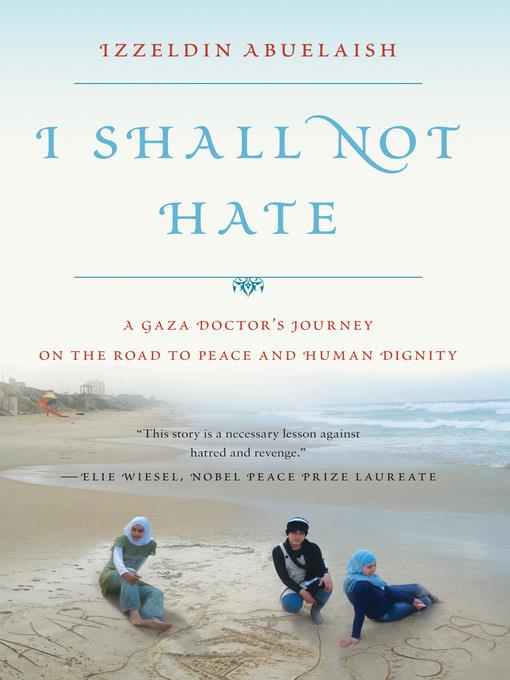
I Shall Not Hate
A Gaza Doctor's Journey on the Road to Peace and Human Dignity
کتاب های مرتبط
- اطلاعات
- نقد و بررسی
- دیدگاه کاربران
نقد و بررسی

Starred review from October 25, 2010
Born in a refugee camp in 1955, Palestinian physician Abuelaish suffers a catastrophic loss when three of his daughters are killed in their home by Israeli fire in 2009. An Israeli television journalist's live broadcast of his call for help captures Israeli public and world press attention. "Most of the world has heard of the Gaza Strip," as Abuelaish says, "ut few know what it's like to live here, blockaded, impoverished, year after year, decade after decade." Abuelaish portrays everyday life in Gaza and tells the remarkable story of how he came to be "the first Palestinian doctor to be on staff at an Israeli hospital." The "tortured politics of Palestine, Israel, and the Middle East" are rendered graphic by his personal accounts of "the humiliation, the fear, the physical difficulty" of border checkpoints and bulldozed homes. Abuelaish tells of the "satisfying, even wonderful" moments, "the good chapter of a bad story," as well; an infertility specialist, he is as "thoroughly smitten" with his research as he is appalled that "Gaza hospitals are rundown and can't be repaired because of an embargo is preposterous." Abuelaish knows anger, but in this impassioned, committed attempt to show the reader life on the sliver of land that is Gaza, he demonstrates that "nger is not the same as hate."

October 1, 2010
Inspiring memoir of the struggle of a Palestinian doctor to preserve his family, humanity and hope in the face of injustice and destruction in the Gaza Strip.
The eldest boy of nine siblings raised in a tiny room in the Jabalia refugee camp, Abuelaish (Public Health/Univ. of Toronto) was determined to lift his family out of the penury to which it had been reduced by its flight in 1948 from its nearby ancestral farm, later swallowed by Ariel Sharon's ranch. With earnings from working on an Israeli farm when he was 15, the author built his family a house to replace the one bulldozed at Sharon's order. Despite increasing restrictions on Gazans' mobility and opportunity, the ragged ghetto boy realized his ambition of becoming the first Palestinian doctor to practice in both Gaza and Israel. Dr. Abuelaish built a five-story building in Jabalia City to house his extended family, who hunkered down there when Israel invaded Gaza in January 2009. Well-known in Israel for his advocacy of medical collaboration as a way to humanize Palestinians' and Israelis' perceptions of each other, Abuelaish felt confident that the Israeli tank sitting outside his window would not target his home. His shrieks of anguish when two shells exploded in the next room, killing three of his daughters and his niece, went out live on the Israeli TV news show for which he was a stringer. The worldwide outcry over the carnage inflicted on the household of a champion of nonviolence prompted Israel to declare a cease-fire. Instead of cursing Israelis collectively, Abuelaish passionately reaffirms his conviction that the resentment on both sides will never weaken until the Gaza-Israel barrier is made permeable to regular human interactions between ordinary Palestinians and Israelis.
A deeply affecting narrative told in a voice of poignant simplicity, punctuated by injunctions to love that are far from corny, tried as they are by the searing experiences of a righteous man striving to act decently in a place of madness.
(COPYRIGHT (2010) KIRKUS REVIEWS/NIELSEN BUSINESS MEDIA, INC. ALL RIGHTS RESERVED.)

























دیدگاه کاربران